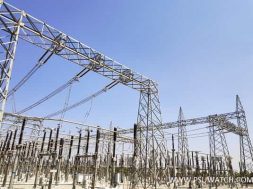
In a ratings statement Ind-Ra said the stable-to-negative outlook reflects mounting receivables by state distribution companies (discoms) due to inadequate improvement in operational parameters.
India Ratings & Research expects capacity utilisation to improve as power demand is expected to hover between 6-7% during the remaining part of the fiscal despite general slowdown of demand. However, it has maintained a stable-to-negative outlook on the sector for the remaining part of the current fiscal.
In a ratings statement Ind-Ra said the stable-to-negative outlook reflects mounting receivables by state distribution companies (discoms) due to inadequate improvement in operational parameters, uncertainty as exhibited by some discoms to honour existing power purchase agreements and continued dependence on imported coal due to lower domestic production.
Ind-Ra notes that the growth in power demand from main manufacturing hubs like Haryana, Gujarat, Tamil Nadu and Maharashtra, has been lower than all-India power demand growth of 6.7% in April-July 2019. However, the growth at all-India level was supported by addition of around 26.4 million new electricity consumers under the Saubhagya scheme.
Ind-Ra believes while power demand would continue to increase, the overhang of the stressed capacity and increase in excess thermal capacity over FY15-FY19 would continue to prevent fresh private thermal capacity addition. Further, given the negative coal production growth reported by Coal IndiaNSE -2.66 % during April-July 2019, reliance on imported coal, which increased during the same period, is likely to remain high for rest of FY20.
Ind-Ra expects credit profile of public and private sector entities to improve in FY20 due to capitalisation of capital work in progress of few public players, likelihood of successful implementation of resolution of the coastal-based capacity for all coastal-based Ultra Mega Power Projects.
The agency believes central players would be able to manage liquidity even when discoms dues rise, on account of strong cash balances, access to the banking system and long-dated debt. However, liquidity profile of few state players remains contingent on timely receipt of state governments’ support. Further, renewable holding companies may face liquidity issues in case of unresolved issues of receivables from Andhra Pradesh and Telangana discoms.












